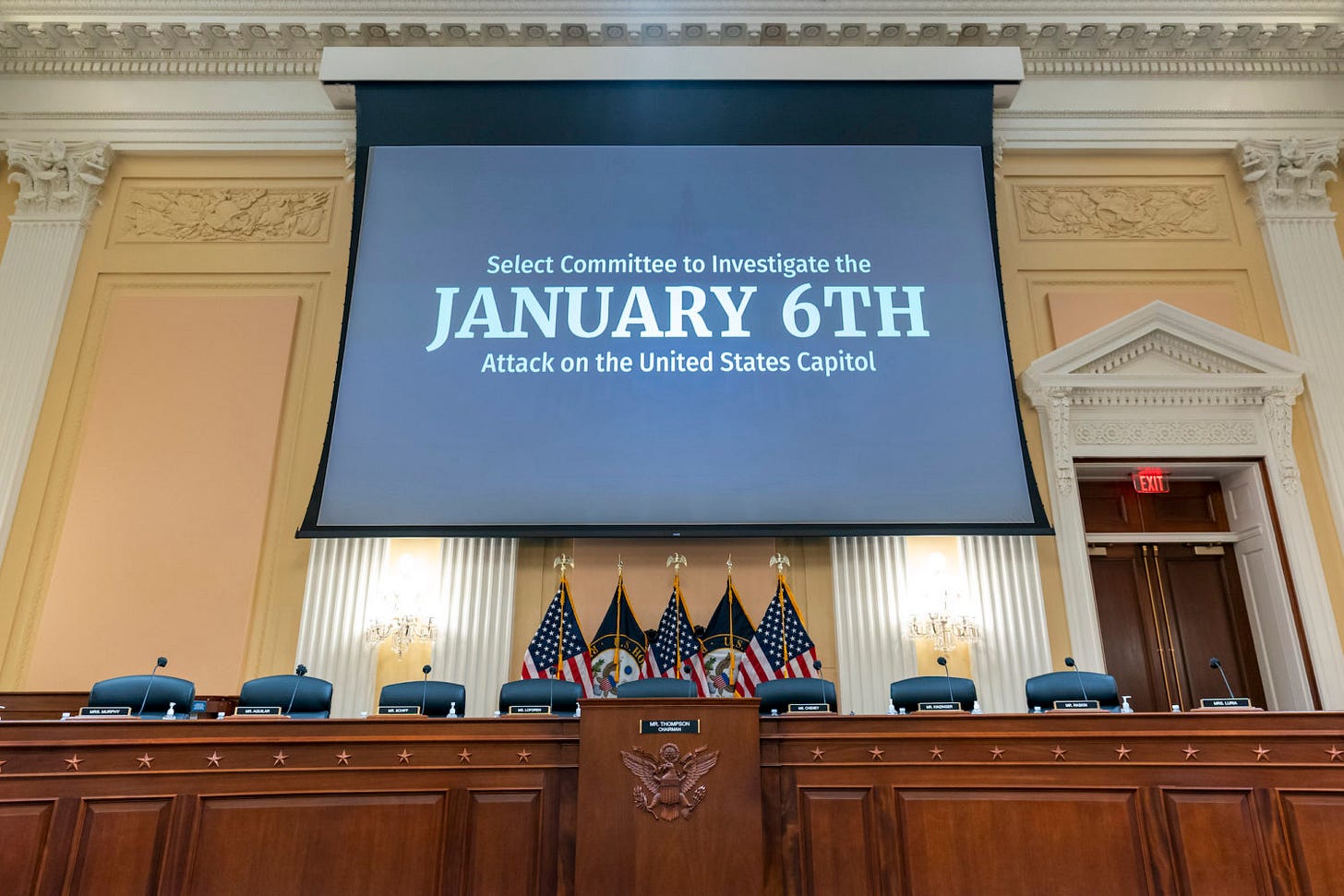Morning Briefing: January 6th Committee Hearing Paints Picture of Trump as Nero
The U.S. House Select Committee on the January 6 Attack hearing in prime time focused on the former President's actions during the January 6th Insurrection, watching the violent rioters on television.

Morning Briefing: Former President Donald Trump spent 187 minutes watching Fox News in the White House dinning room as violent rioters overtake the U.S. Capitol building.
During that time period, the former President was calling Rep…


